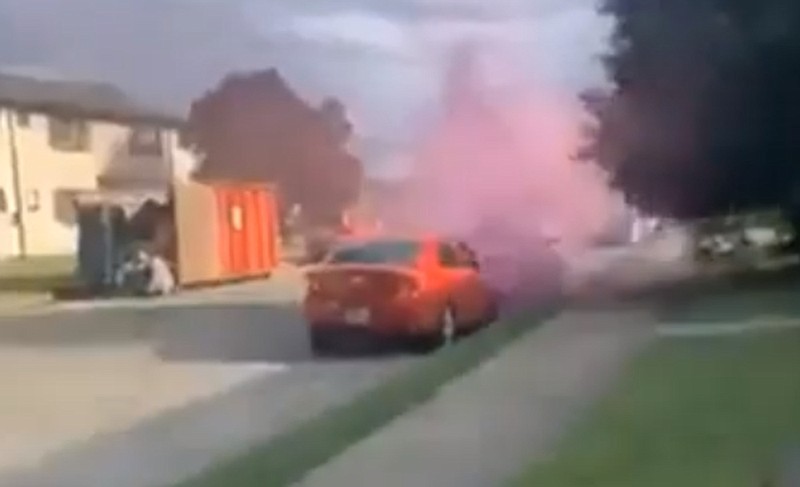"It's all fun and games until someone loses an eye." - Internet meme
Paintballs have replaced bullets in fights among young adults in some Chattanooga neighborhoods, and on the surface spilling paint is better than spilling blood.
Unfortunately, as with bullets, the paintballs occasionally have hit uninvolved third parties and in other cases are being used for vandalism.
The paintball games, according to Chattanooga Police Chief David Roddy, are "starting to cause real fear" and real injuries, whether "intended or not."
Since May 1, according to police, more than 70 reports of paintball activity have been made.
Youth have enjoyed paintball as a sport for several decades, but usually in controlled environments with protective gear and under supervision. Getting hit, or tagged, with a paintball in those conditions offers a momentary sting and then the sticky mess of the exploded paintball on the player's clothing. Getting hit by a paintball is not life-threatening.
Atlanta-based rapper 21 Savage was credited with starting a movement of "guns down, paintballs up" in that city two years ago in an attempt to quell gun violence. The trend spread to cities across the country but has largely backfired, according to the Atlanta Journal-Constitution.
The creativity of the exercise and the preference of paintball blasts to bullet holes aside, the problems of street level paintball wars are both short- and long-term.
The short-term problems include potential injuries to uninvolved third parties, the use of paintballs for random vandalism and the difficulty from afar in distinguishing paintball guns from real guns.
If someone never expects to be shot with a paintball gun, the immediate sensation of being hit is no less of a shock than that of being hit by a bullet. Fear, panic and at least brief pain are immediate, and since the victim is not wearing protective gear the chance of a severe injury - to an eye, for instance - is far greater than if shot in a controlled environment.
"They are intentionally targeting people that they know are not participating," Roddy said. "They're targeting people that are not playing the game, that are not carrying a paintball gun."
As such, following the fear, panic and pain also might be a desire for retaliation - a bullet, say, in exchange for a paintball.
"The fear is that somebody truly believes that they're being shot at with a real firearm, and they respond accordingly," said Roddy. "[S]uddenly now we have a very real, permanent tragedy ... of someone who thought they were playing a game has tragically lost their life."
One also might say that paintballs used in random vandalism are no worse than toilet papering someone's yard (before toilet paper was a commodity) or spraying graffiti on a building. But all three acts essentially are violating the property rights of others - damaging, or taking, those things the property owners hold free and clear.
An even more serious consequence of street paintball battles is the equipment used, which, in many cases, especially from afar, resembles the real thing. If neighbors and summoned police see weapons and immediately determine they are paintball weapons, that's one thing. If they see only the weapons, being short or long guns or hand grenades, and perceive there is a serious threat, that's another.
It doesn't take much imagination to conceive of police having to waste time and resources on a neighbor's report of drawn guns and the precautions they would have to take to ensure a battle with real bullets is not about to explode between, say, rival gangs.
"[W]hen we started seeing that and hearing the spread of concern and fear," Roddy said, "then we have an absolute obligation to get this message out and ask for our community to step into these conversations as well."
One long-term problem of paintball battles replacing gunfights is the understanding that the aggression has not changed. The violence has been dialed down, but the outsized bellicosity over a perceived lack of respect, a minor property dispute or who's seeing whose girlfriend has not.
Until those types of problems can be worked out with words or the help of a third-party arbiter, the violence inherent in those neighborhoods will not lessen. Paintball may be a temporary distraction - and bravo if it can save a life - but it will not be a permanent solution.
Nevertheless, we encourage the community to identify and employ controlled environments - not streets - for such good-natured fights but also to understand that a more permanent solution involves how minor disputes become major and how they must be resolved nonviolently.
